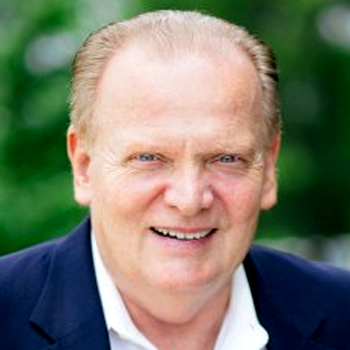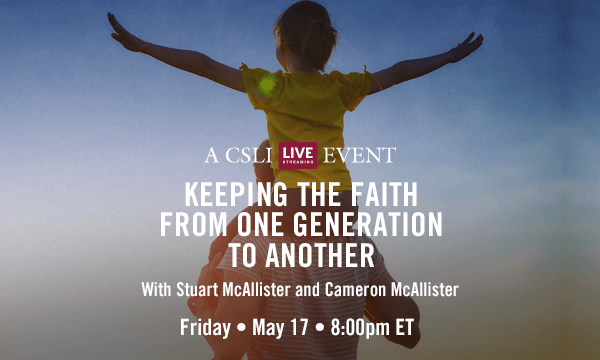Back to series



C.S. Lewis on Miracles
Click here to open a Print - Friendly PDF
One of the classic ways in which believers have provided evidence for their faith is through miracles. By looking at prophecies from the Old Testament fulfilled in Christ, or healing and nature miracles, or the resurrection, believers have tried to show that there is a convergence of signs all pointing to Jesus as the Son of God. However, since the Enlightenment, there has been a strong rejection of miracles by modernism so that it has become necessary to apologize for the introduction of miracles rather than using them for evidence. Perhaps this skepticism is waning now that modernism is not in vogue, but there are still many who are skeptical of miraculous claims. C. S. Lewis in his book Miracles and in essays on the subject sought to clear the ground so that miracles could again be discussed.
One of the factors that brought Lewis to public attention was his unblushing affirmation of the supernatural—God, demons, miracles, and all. How could a sophisticated Oxford professor believe such things in the twentieth century? When his face appeared on the cover of Time Magazine in 1947, it read, “Oxford’s C. S. Lewis: His Heresy Christianity.” What made Lewis such a “heretic?” Well, he rejected the fashion to lower the bar of belief, minimizing the things you really needed to embrace to be a Christian. German theologian Friedrich Schleiermacher (1768-1834) had reinterpreted the faith so that it could be quite palatable for its “cultured despisers.” Rather than confront their objections, he gave ground so that there would be no obstacles such as miracles to get in the way.
Liberalism tended to present Christianity without any miracles. Occasionally someone would accept a really big miracle such as the Resurrection but then deny the virgin birth, turning water into wine, walking on water, feeding the five thousand, and so on. It was important at that time as well as today to ask the question, “Why are miracles rejected without further consideration?” Lewis took on that task, not so much arguing for particular miracles, but critiquing naturalism that in effect meant that miracles were impossible or so improbable that they could never be accepted.
The Problem with Naturalism
Lewis begins Miracles with a section on naturalism—nature is all that there is. You might represent naturalism and super naturalism in these terms. Naturalism presents nature as a closed box with everything being explained by natural cause and effect, whereas super naturalism sees nature as an open system, operating by natural law most of the time, but open to intervention by God.
C. S. Lewis’s strategy, before even dealing with specific objections to miracles, was to show that naturalism had a tendency to self-destruct. In other words, if naturalism was true, then we could not be certain of the arguments that attempt to establish it. Some of this argument moves into more technical distinctions which I do not want to discuss in this context, but I do want to sketch the argument so that you can see its significance. If you want to look at the details, read Miracles or one of the sources noted at the end of this article.
The argument goes something like this: in order for naturalism to be true, it must account for everything under the naturalistic premise. Yet the one thing naturalism cannot account for is the reasoning process necessary to establish naturalism. If a theory provided an explanation for everything in the universe but undermined the very thinking used to establish it, then it would either disprove the theory or make it very unlikely. If naturalism undermines reason itself, Lewis says:
…it would have destroyed its own credentials. It would be an argument which proved that no argument was sound—a proof that there are no such things as proofs—which is nonsense.
Yet naturalism does undermine reason itself. Lewis says that naturalism
...offers what professes to be a full account of our mental behavior; but this account on inspection leaves no room for the acts of knowing or insight on which the whole value of our thinking, as a means of truth, depend.
If only blind, unconscious, material forces are working by chance within the closed box of nature, then what is the status of the conscious, thinking being that arises out of that chance process? How can we have confidence in reason? Do we not need to somehow get outside the box in order to see it and describe it clearly? But, according to naturalism, we are chance products of that box and cannot get outside it. Forces that are material, working by chance, might produce an ability to think in a way that was sound, but also more likely would give us defective, distorted reasoning abilities. Richard Purtill, Professor Emeritus of Philosophy at Western Washington University, restates Lewis’s argument (taking into account the critiques that were given of it) in his Reason to Believe:
If I pose a mathematical problem and throw some dice, the dice might happen to fall into a pattern which gives the answer to my problem. But there is no reason to suppose that they will. Now in the Chance view, all our thoughts are the results of processes as random as a throw of dice. …(A)ll our thoughts result from processes that have as little relation to our minds as the growth of a tree.
If you throw the dice to get the solution to your math problem, how likely do you think that the first or second throw would give you the right answer? The complexity of the universe is far greater than 2 + 2 = 4. It would always be more likely that you would come up with an erroneous result than the true one. Lewis is dealing here with something much more than a math problem: the whole validity of our reasoning shaped by the cosmic dice roll. Even if perchance these reasoning powers were valid, we would never know or have an adequate basis to know that they were valid. Thus, on a naturalistic foundation, all our confidence in the reason used to establish naturalism is undermined. The only slim hope is that one in a billion rolls of the dice has produced the correct result.
This is pretty abstract stuff, and perhaps your eyes have glazed over if you have read this far. I think that this general critique is perhaps better seen in the critiques Lewis gives to Marx and Freud. For instance, if according to Marx all philosophies and religious views come out of material forces—particularly the economic realm of matter—and thus are suspect, would not that same suspicion apply to Marx’s views?
Socratic Club Debate
 In 1948, as part of the regular Socratic Club meeting at Oxford, Elizabeth Anscombe, an analytic philosopher, brought forward some critiques of Lewis’s argument in this section (Chapter 3) of Miracles. Without going into all the details, the general thrust of the debate went as follows. In the original version of Miracles, which Anscombe was critiquing, Lewis had slightly overstated his case. He had argued that when we find that a belief results from chance, we discount it. Anscombe pointed out, in essence, that a belief arising from non rational sources just might happen to give a right answer. She asked him: “What is the connection between grounds and the actual occurrence of the belief?”
In 1948, as part of the regular Socratic Club meeting at Oxford, Elizabeth Anscombe, an analytic philosopher, brought forward some critiques of Lewis’s argument in this section (Chapter 3) of Miracles. Without going into all the details, the general thrust of the debate went as follows. In the original version of Miracles, which Anscombe was critiquing, Lewis had slightly overstated his case. He had argued that when we find that a belief results from chance, we discount it. Anscombe pointed out, in essence, that a belief arising from non rational sources just might happen to give a right answer. She asked him: “What is the connection between grounds and the actual occurrence of the belief?”
Lewis, in the debate, made some qualifications to his position and later felt that the points raised by Anscombe warranted some revisions in this early section of Miracles. What is surprising about this whole incident is the “much ado” made about it. Some say that Lewis lost the debate, some say he won it, and others are in between. For instance, philosopher Basil Mitchell said in an interview, “I don’t have the sense that anything decisive happened at that moment….” Austin Farrar said afterwards,
Much has been made about Lewis’s psychological state after the debate, some saying he was crushed by it and others, including Anscombe herself, who had dinner with him not long afterwards, said that Lewis was his normal jovial self.
Some have said that he gave up writing apologetics after that debate. Others say that is absurd. For instance, he later responded to Norman Pittinger’s critique of his arguments on miracles in the Christian Century. Probably the best is to say that Lewis, although at one time a philosophy tutor, was more trained in the classic philosophical tradition than in the new analytic philosophy. He knew that in order to further debate with philosophers such as Anscombe, he would have to do much further study for which he had no particular inclination. So he decided to write more in other areas and not do much of further work in the philosophical arena.
The central question is, was his argument in Miracles sound? I think the answer is “yes.” A few years later, John Lucas set up the same debate with Elizabeth Anscombe on the same issues and defended Lewis’s position to the satisfaction of many. Philosopher Basil Mitchell (who became President of the Socratic Club) later said about this re-run debate by Lucas and Anscombe:
Lucas simply maintained that on the substantial issue, Lewis was right and that, for the sort of reasons Lewis had put forward, a thoroughly naturalistic philosophy was logically incoherent. An outcome of that debate was to make it perfectly clear that, at the very least, Lewis’s original thesis was an entirely arguable philosophical thesis and as defensible as most philosophical theses are.
Impossible
There are three negative ways to respond to miracles: that they are (1) impossible, (2) improbable, or (3) inappropriate. Lewis addresses all three of these critiques.
Many people assume that miracles are impossible. Lewis says in Reflections on the Psalms:
The real reason why I can accept as historical a story in which a miracle occurs is that I have never found any philosophical grounds for the universal negative proposition that miracles don’t happen.
Unless you are absolutely certain that there is no supernatural power such as God in the universe, it would be hard to be so dogmatic as to say that every instance of claimed miracles is false. Granted, miracles are rare and might seem strange given our everyday experience, but that does not mean they ought to be automatically excluded. Why should we assume that what we have experienced is all there is to reality?
Improbable
In philosophical circles, it is common to argue that miracles are improbable. In fact, David Hume’s famous argument against miracles maintains that it is always more likely that any particular claim to a miracle is false than that the miracle really took place. In other words, it is always easier in light of the “firm and unalterable” laws of nature to believe that those who testify to a miracle are in error than that they are telling the truth. For instance, there are billions of instances in which dead people stay dead and only occasional stories of dead people rising. The odds would be several billion to one (or two or three or so on) against such a report being true.
When I was in graduate school, I took part in the regular meetings of a group called “Apologia” which consisted of a number of believing graduate students from various disciplines. I remember spending many hours on Hume’s philosophical critique. The more we explored the argument, the stranger it seemed to me. I asked one philosopher who had been deeply impacted by this argument:
What if 500 people were claimed to have risen from the dead and 5,000 people in each case were said to have witnessed the resurrection, would that bring a different result?
I was assured that “no” it would still be several billion versus 5,000 in each case. It would not matter if I and all my friends witnessed 100 miracles; the result would still be the same. As I thought about it, the question emerged: “Why do the instances that establish natural law have to count against a reported miracle?” Rather than weighing the evidence for a miracle, natural law, the usual way things work, was being used to exclude the unusual (miracle). Lewis says:
No, of course we must agree with Hume that if there is absolutely ‘uniform experience’ against miracles, in other words, they have never happened, why then they never have. Unfortunately, we know the experience against them to be uniform only if we know that all the reports of them are false. And we know all the reports are false only if we know already that miracles have never occurred. In fact, we are arguing in a circle.
Hume allows no instance of a miracle, because another explanation is always preferable to him such as, in Lewis’s words,
...collective hallucinations, hypnotism of unconsenting spectators, widespread instantaneous conspiracy….Such procedure is from the purely historical point of view, sheer midsummer’s night madness unless we start by knowing that any miracle is more improbable than the most improbably natural event. Do we know this…?
This whole method of adding evidence (from natural law) rather than weighing evidence (for each reported miracle claim) has not been sufficiently explored. Add to this that even natural laws (as understood in a particular period) have had to be revised by anomalies that needed a better explanation. If there is no way of recognizing exceptions to laws, no way to believe others (or your own) direct observation of a miracle, no way to alter the natural law, then you might wonder if you had a defective view of probability. Establishing a natural law and evaluating miracles’ claims are different kinds of things, but not the same thing.
Another one of Hume’s arguments is that people from earlier ages were uneducated and uncivilized and therefore easily duped by miracle claims. I suppose that there is truth in this, but if true, it would not mean everything they report was false. People of earlier ages knew that the dead do not normally rise and virgins do not normally have babies. In fact, Joseph was ready to break his engagement with Mary when he heard of her pregnancy. He was under no illusions that virgin births regularly happen. Joseph was only persuaded otherwise by a supernatural encounter.
Inappropriate
Yet another of Hume’s arguments is that various competing religions make miracle claims to establish contradictory views. Lewis’s approach to this is first, to admit the possibility that some of these claims are true and second, to argue for the unique “fitness” or appropriateness of miracles within Christianity. In Miracles Lewis says:
I do not think that it is the duty of the Christian apologist (as skeptics suppose) to disprove all stories of the miraculous which fall outside the Christian records…. I am in no way committed to the assertion that God has never worked miracles through and for pagans or never permitted created supernatural beings to do so….
Perhaps God could heal someone in a pagan religion not to establish that religion’s claims but merely out of compassion.
Lewis went on to say:
But I claim that Christian miracles have a much greater intrinsic probability in virtue of their organic connection with one another and with the whole structure of religion they exhibit.
For instance, in Hinduism, the principle of non-distinction (All is One) rules out any validity to the distinction between natural and supernatural. Since all is “maya” or illusion, how can it be important to demonstrate power over the illusion? Granted, there have been claims of gurus levitating or healings in New Age circles, but within the system of thought how important are these “illusory” acts?
There are stories in late Buddhism about the Buddha doing miracles. But since he held that nature is illusory, why would he be concerned with miraculous demonstrations on the level of nature? One early story contains a discussion of Buddha with a man who was sitting by a lake meditating so that he could walk across on the water. Buddha’s advice was to take the ferry. Lewis comments:
Sometimes the credibility of the miracles is in inverse ratio to the credibility of the religion. Thus, miracles are (in late documents I believe) recorded of the Buddha. But what could be more absurd than that he who came to teach us nature is an illusion from which we must escape should occupy himself in producing effects on the Natural level—which he who comes to wake us from a nightmare should add to the nightmare. The more we respect his teachings the less we could accept his miracles.
So, miracles do not have the same place and significance—the same fitness in pantheism or paganism as in theism. It is particularly in Christianity that miracles have decisive significance converging on Christ. Prophecies, miracles, and the resurrection all demonstrate that He is one sent by God. In the Old Testament, miracles are present around agents of revelation or as a deliverance of God’s people (i.e. Red Sea) but do not have the same focus as in the New Testament (on Christ). In the Koran, Mohammed does not do any miracles—except the revelation of the Koran; whereas, Jesus is reported there to have done 16 miracles. Only in later Islamic tradition are there reports of miracles done by Mohammed.
As Lewis says, miracles in the New Testament are greater in their “intrinsic probability” because of the credibility of the historic claims and their “organic connection”—they fit together and converge on Christ. Jesus’ miracles are not just powerful acts but also demonstrate who He is. So the healing of the man who was born blind (John 10) leads to the revelation that He is the light of the world. The resurrection of Lazarus from the dead (John 11) leads to the proclamation that He is the resurrection and the life, and so on. Miracles are often not only indicative of God’s power but have symbolic significance as well. They fit within the “whole structure” of the religion.
Summary
To those who would deny the miraculous, C.S. Lewis might say: First, naturalists (who view nature as a closed box) have great difficulty sustaining their position because the credibility of the thinking used to establish the position is severely undermined by their own assumptions. Second, miracles are not impossible because there is no argument to prove that they cannot happen. Third, they are not improbable unless you wrongly oppose instances of natural law to unusual or miraculous events. You need to weigh the historical evidence for each of these unusual events before excluding or accepting them. Fourth, miracles are not inappropriate because there is a unique “fitness” of how miracles relate to Christianity by comparison with other religious systems.

Arthur W. Lindsley
Senior Fellow for Apologetics, CSLI Arthur W. Lindsley is the Vice President of Theological Initiatives at the Institute for Faith, Works, & Economics. He has served at the C.S. Lewis Institute since 1987 both as President until 1998 and currently as Senior Fellows for Apologetics. Formerly, he was director of Educational Ministries at the Ligonier Valley Study Center, and Staff Specialist with the Coalition for Christian Outreach. He is the author of C.S. Lewis's Case for Christ, True Truth, Love: The Ultimate Apologetic, and co-author with R.C. Sproul and John Gerstner of Classical Apologetics, and has written numerous articles on theology, apologetics, C.S. Lewis, and the lives and works of many other authors and teachers. Art earned his M.Div. from Pittsburgh Theological Seminary and a Ph.D. in Religious Studies from the University of Pittsburgh. COPYRIGHT: This publication is published by C.S. Lewis Institute; 8001 Braddock Road, Suite 301; Springfield, VA 22151. Portions of the publication may be reproduced for noncommercial, local church or ministry use without prior permission. Electronic copies of the PDF files may be duplicated and transmitted via e-mail for personal and church use. Articles may not be modified without prior written permission of the Institute. For questions, contact the Institute: 703.914.5602 or email us.
COPYRIGHT: This publication is published by C.S. Lewis Institute; 8001 Braddock Road, Suite 301; Springfield, VA 22151. Portions of the publication may be reproduced for noncommercial, local church or ministry use without prior permission. Electronic copies of the PDF files may be duplicated and transmitted via e-mail for personal and church use. Articles may not be modified without prior written permission of the Institute. For questions, contact the Institute: 703.914.5602 or email us.
-
Recent Podcasts
A Welcome Change in Apologetics
by Randy Newman, Aimee Riegert on April 19, 2024We’re burdened for our friends who don’t know...Read More
-
Questions That Matter Podcast – Samuel James and Digital Liturgies
by Samuel James, Randy Newman on April 19, 2024
-
The Side B Stories – Dr. James Tour’s story
by Jana Harmon, James Tour on April 12, 2024
-
Recent Publications
Isn’t Morality Relative?
by Christopher L. Reese on April 1, 2024It is widely accepted in the Western world...Read More
-
Do Muslims and Christians Worship the Same God?
by Andy Bannister on March 1, 2024
-
Artificial Intelligence and Its Impacts on Humanity
by John Lennox on February 13, 2024
0
All Booked
0.00
All Booked
0.00
All Booked
22140
GLOBAL EVENT: Keeping the Faith From One Generation To Another with Stuart McAllister and Cameron McAllister, 8:00PM ET
https://www.cslewisinstitute.org/?event=global-event-keeping-the-faith-from-one-generation-to-another-with-stuart-mcallister-and-cameron-mcallister-800pm-et&event_date=2024-05-17®=1
https://www.paypal.com/cgi-bin/webscr
2024-05-17

Next coming event
Days
Hours
Minutes
Seconds
GLOBAL EVENT: Keeping the Faith From One Generation To Another with Stuart McAllister and Cameron McAllister, 8:00PM ET
On May 17, 2024 at 8:00 pmCategories
Speakers

Arthur W. Lindsley
Senior Fellow for Apologetics, CSLI
Team Members





